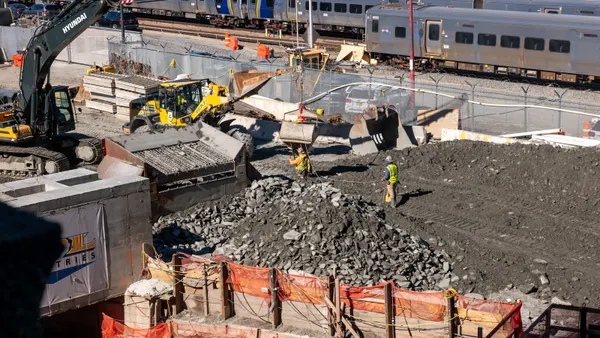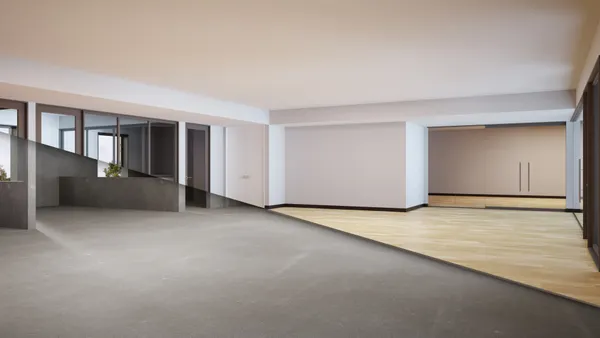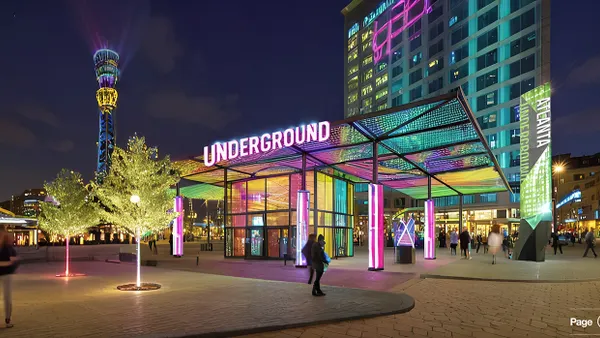Dive Brief:
- The U.S. Green Building Council (USGBC) has announced it will officially adopt resilient construction standard RELi, according to Architect magazine.
- RELi, which was developed with the input of the Institute for Market Transformation to Sustainability, Perkins + Will and other industry players, gives projects points in such resiliency categories as access to emergency supplies, communications and first aid; adaptive design for extreme weather and associated hazards; social equity; resilient and urban food production; and employment. RELi also includes some of the USGBC's Leadership in Energy and Environmental Design (LEED) sustainable practices criteria in its points system.
- The USGBC has not yet indicated if RELi will be part of the LEED certification program or if it will become its own standard, but said resiliency is increasingly important in the face of climate change and other such impactful events.
Dive Insight:
The issue of resiliency is at the forefront after a string of natural disasters swept through parts of the continental U.S. and its territories this year causing hundreds of billions of dollars in damage. The recovery effort, as a result of devastating hurricanes in Texas, Florida and Puerto Rico and wildfires in California, will be massive, but for some community and state leaders, it's not only about rebuilding but rebuilding with resiliency in mind.
Earlier this month, Texas officials announced that they had come up with a $61 billion plan to restore the areas demolished by Hurricane Harvey — a combination of "coastal spines" that would prevent future flooding, additional reservoirs and the purchase or elevation of properties in the low-lying areas most likely to be affected by future severe weather events.
Resiliency also made it to the national stage recently when President Donald Trump declared November 2017 to be Critical Infrastructure Security and Resilience Month in an effort, administration officials said, to highlight the importance of making sure that critical infrastructure ensuring the nation's public health and physical and economic security was more resilient.
One resiliency-focused project currently under construction is the Rainier Square Tower in Seattle. The residential high-rise will use a coupled steel-plate composite shear wall in which the cross-tied plates are filled with concrete to increase seismic resistance, making it more resilient to earthquakes. In addition to that feature's absence of "rebar congestion," it's also reportedly faster, easier and safer to build.













